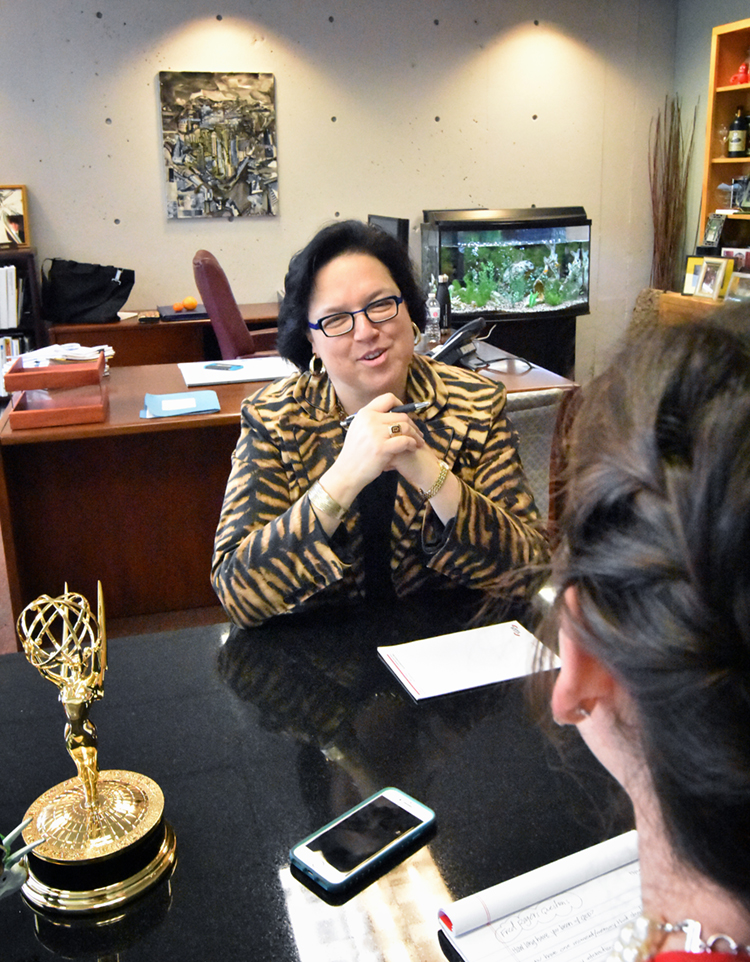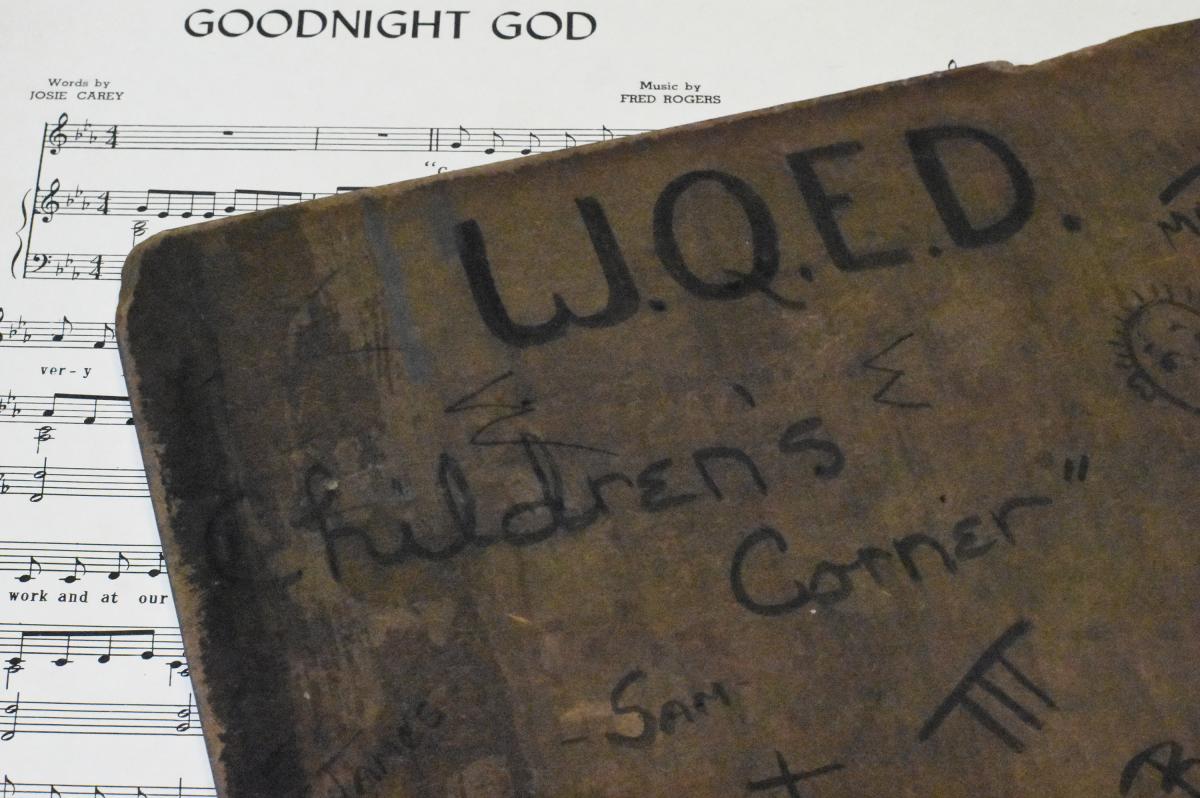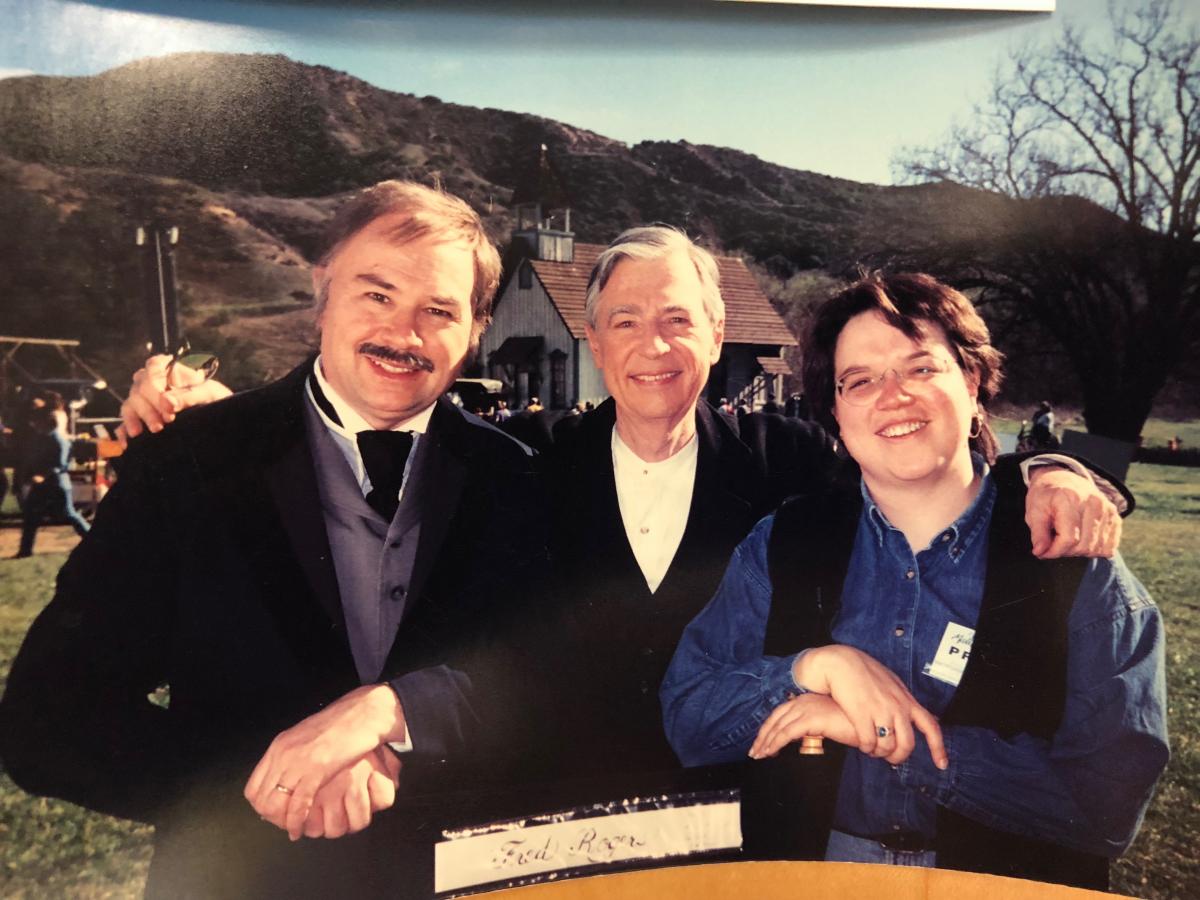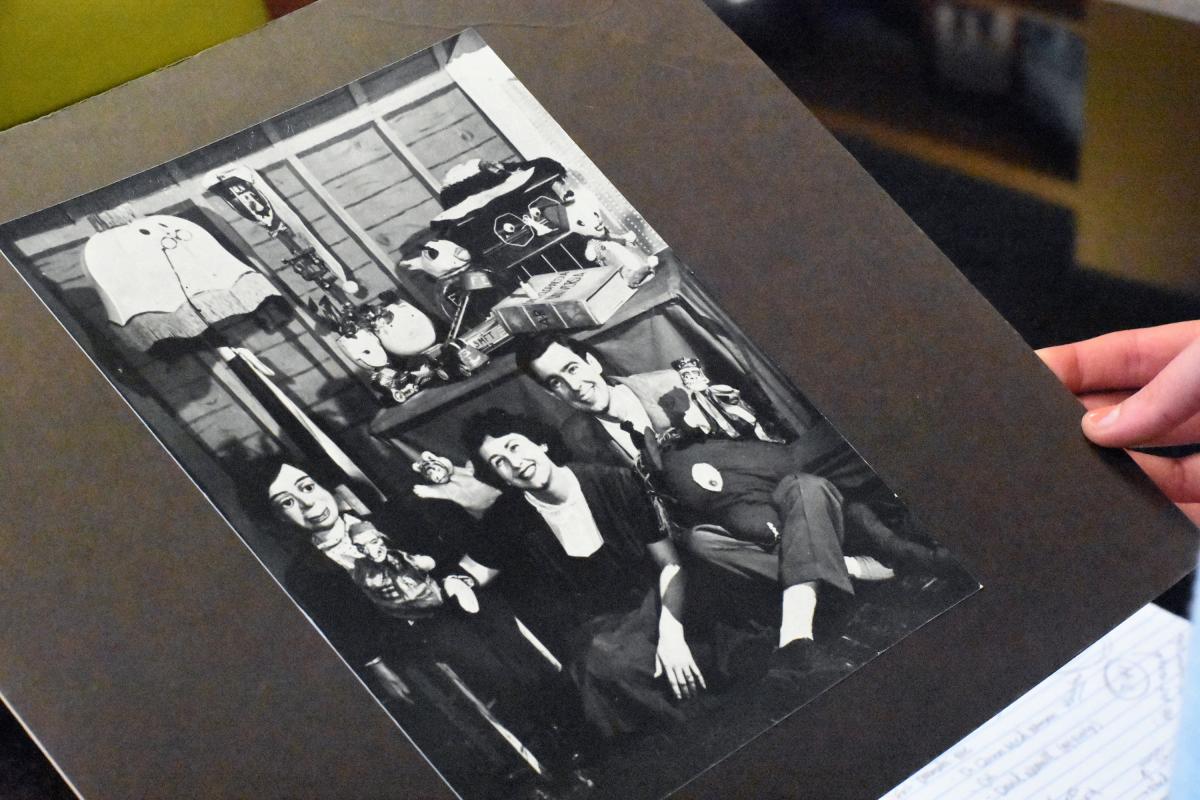Deborah Acklin, President & CEO, WQED Multimedia
Our CEO and President, Deborah Acklin has had many encounters with Fred Rogers, a few even before she came to WQED. Her very first one is probably one she’ll never forget. Mister Rogers was playing his first ever dramatic role on Dr. Quinn Medicine Woman, so Acklin knew she had to go to the Paramount Ranch in Agoura Hills, CA. She got permission from CBS to interview Fred. All the major stations were there in LA to interview Fred too, and they all went into the trailer where he was being outfitted. “He ignored all the other cameras and he turned to me and he said, ‘You’re from Pittsburgh; you’re from KDKA.’ And I said, ‘Yes.’ And so he kind of came close to me and said, ‘It’s a beautiful day in this neighborhood!’” The woman from CBS chastised at her and told her to back her cameras off because she didn’t like the preferential treatment they were getting. All day long Acklin and her photographer sat in the hot sun waiting for their turn. All the big stations got their chance, and they were still waiting. Finally, Fred came over and said, “You’ve been waiting a long time.” Acklin replied, “Yes, but that’s okay.”
Acklin had been listening to his interviews with the others and noticed that they had been asking him the same questions—something that happens a lot when people interview celebrities. So, she made it a point not to do that while interviewing Fred. “After we did the basics, then I said to him, ‘You’ve had a long time sitting around waiting for your scene today—you’ve had a lot of downtime.’ And he said, ‘Yes, Yes I have.’ And I said, ‘So what have you been thinking about. What’s on your mind today?’ And he looked at me. And he kind of put his head down… And looked at me again. And he started to cry.” “I was like, holy cow, Mister Rogers is crying. And so my photographer taps me on the shoulder like, ‘Do you want me to stop rolling?’” Acklin shook her head no because Fred had not asked for a minute or anything like that… he just cried. “And when he was done crying, then he said, ‘That’s a wonderful question, and I’m so glad you asked me.’ He said, ‘I’m thinking about my friend in Latrobe who I grew up with.’ And he said, ‘She’s dying today. And she’s been on my mind all day.’”
Mister Rogers and Acklin then talked about friendship, emotions, and other things as well. She took the footage back to the KDKA newsroom and was teased over the fact that she made Mister Rogers cry. She refused to let them use the footage of him crying in her story. Fred had said to David Newell (who played Mr. McFeely on Mister Rogers’ Neighborhood) after they walked away, “That was a really good interview. That might have been the best interview I’ve ever had.” David contacted Acklin while she was at KDKA and asked for the tapes of the interview. Normally you’re not allowed to do that, but for Mister Rogers… She took the tapes and gave them to David, which she believes he still has.
The first time she came to work at WQED it was the week before Christmas, and no one was here. “All of a sudden this guy comes to my office door and he says to me, ‘You Acklin?’ And I said, ‘Yes.’ And he said, ‘There’s someone here that wants to see you.’ And then he took off…. And then he took off down the hall. So I’m like chasing this guy like, who the hell are you? And where am I going?” Next thing she knew, she was in Mister Roger’s office, and there were two priest Monks in there. They were administrators from St. Vincent who were working with Mister Rogers to try to figure out the Fred Rogers’ Center and eventually get his archives there. One of them happened to be her cousin who was a Benedictine Monk. When her cousin, Father Tom, had got there, he said, “My cousin Deborah is working here now. She’s an executive producer.” And Fred said, “Oh invite her in!” Hence why a man was sent to her office to get her.
“So I like sat there in this tiny little chair like, Oh my God, I’m in Mister Rogers’ office. I don’t even remember what we talked about. But he just couldn’t have been more real and more gracious.” While he was in the building at WQED, one could always tell he was here. One day, Acklin heard piano music in the building. So, she went into the hallway to see what this music was. Acklin said the piano music was beautiful, and one could tell that it was a skilled player playing the music. “Almost like zombies,” Acklin said, everyone came out of their offices and was drawn to this piano music. Downstairs in studio B of WQED was Mister Rogers playing the piano, for himself. Everyone gathered around the piano. When he finished, he stood up, did a little bow (Acklin said he was a big bower and loved to bow) and everyone clapped. Later, someone explained to Acklin that when Mister Rogers was upset, angry, or having a tough time with something, he would play music. This would help him deal with the situation or relax him.
Acklin’s overall impression of Mister Roger’s is that she’s never met anyone like him. “When he died, which we were all pretty wrecked about, and did what we could do to express it. Which was to make programs. We did, what I thought, a beautiful set memorial shows to him. But, I can remember saying to my mother at the time, because my mother is Catholic and very much into saints. I said to her, ‘You know I think I’ve met three saints in my life. I didn’t meet, but I was in the presence of Pope John Paul. I was in the presence of the Dalai Lama. And I knew Fred Rogers. And that’s sort of how I saw them. I think that to this day,” said Acklin. “Fred was Presbyterian, not Catholic so saints weren’t something that I think he would have identified with. He would have pushed that kind of definition and characterization away,” said Acklin. “Because he was the definition of humble. But that’s the way I felt about him.”



